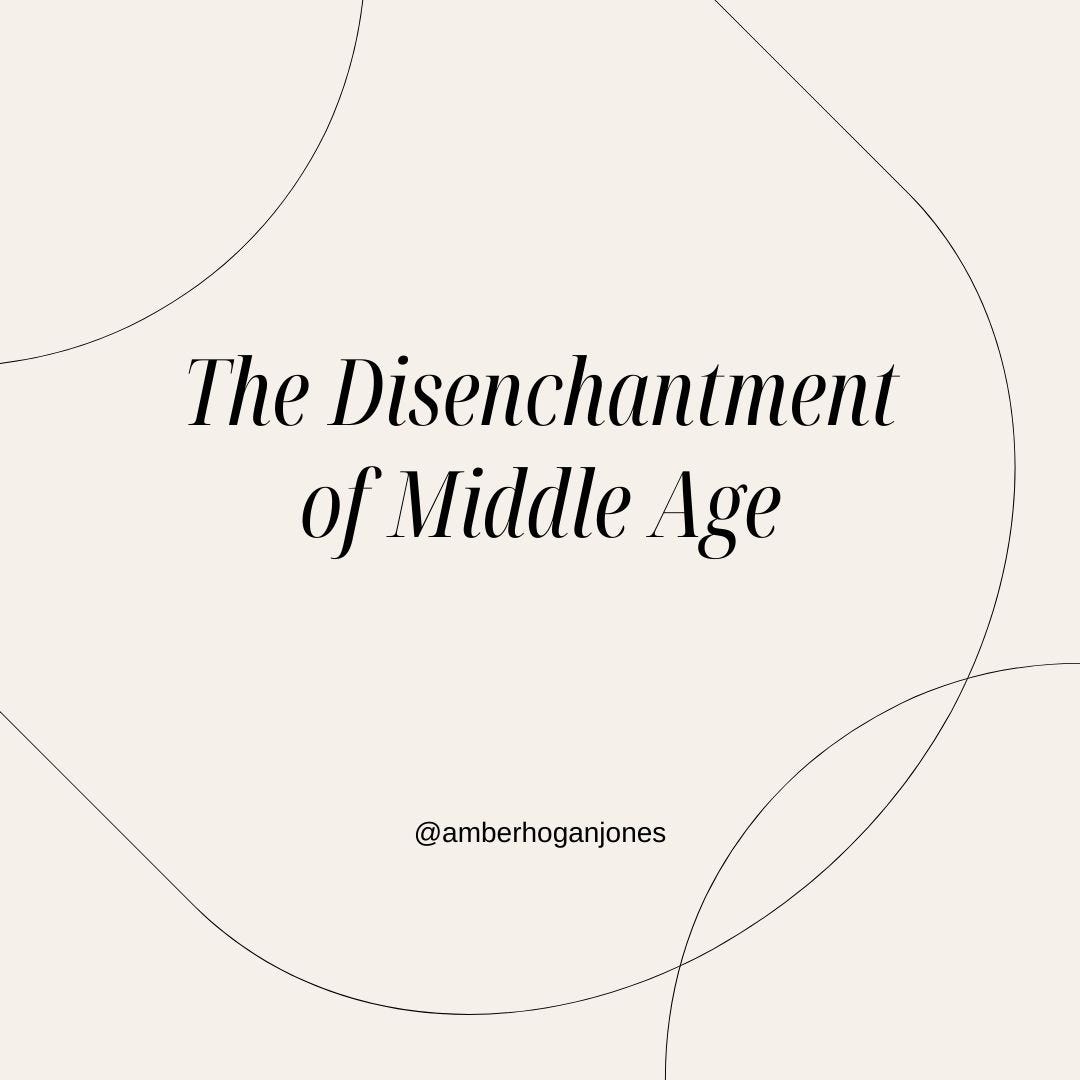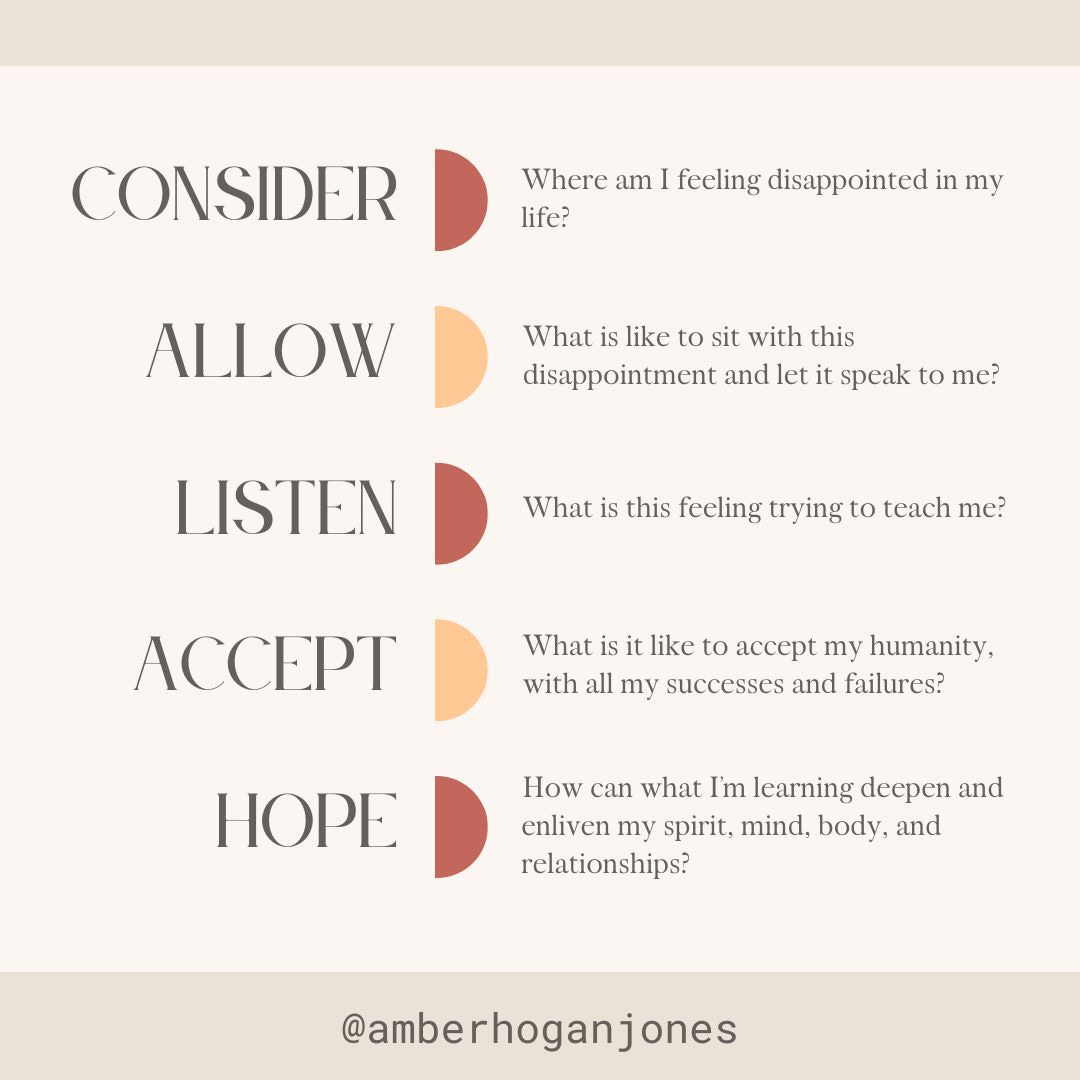The Disenchantment of Middle Age
Why can't we name the disappointment common to so many of us?
“Blessed are the poor in spirit, for theirs is the kingdom of heaven.” – Matthew 5:3
I turn 43 in a few weeks and, I must admit, I’m feeling some kinda way about life. It’s widely known that middle age folk experience weirdness for about ten years between the ages of 30-ish and 50-ish. Mid-life crises have long been the go-to fodder for movies, books, songs, and TV series. Stereotypes abound – women scrambling for facial injections and men for sports cars. Everyone sadly grasping for the youth they can never recover and simultaneously dreading the downhill roll toward death that will characterize the rest of our lives.
Yes, the picture America paints for mid-life is quite bleak, even if it is sometimes comical.
But we don’t often get below the clichés to deal with what’s beneath this bleak picture, at least not as a collective people. We may do personal work, like finally beginning therapy or carving out space for a new hobby. We may even embrace physical aging and discipline ourselves to learn new things. These are all common aging practices we celebrate in our overly individualistic culture.
Yet what we emphatically resist doing, as a society, is naming the elephant in the room. The word we seem afraid to speak out loud, but which also keeps us up at night, is the one thing we like to avoid recognizing together – disappointment. No one talks aloud about the crushing disappointment of mid-life.
And perhaps that’s because disappointment is such a weird word to describe what we experience as our crow’s feet deepen, our knees go bad, our parents pass away, and our children outgrow their need of us. On the one hand, it’s simply inadequate a word to describe the cataclysmic shifts happening to our bodies, minds, careers, and relationships. Most of us haven’t experienced this much internal and external upheaval since freaking puberty.
On the other hand, the word is embarrassing to say. It sounds weak, childish, and far too vulnerable for most of us to mention in the context of community. To utter the words, “I’m disappointed…” followed by an actual pain-point in our lives feels like standing in a spotlight.
Perhaps we also fear others’ responses. To name our disappointment is to open ourselves up to all kinds of common reactions. The last thing we want is to invoke pity or to garner feeble attempts at making us feel better. That’s much worse than suffering in silence. We also don’t want people to think we’re ungrateful for all the good in our lives. By mid-life many of us have established ourselves in careers, achieved impressive goals, and built great families. It’s not a good look to then say we’re deeply disappointed. Or at least that’s what we tell ourselves.
Maybe we need new words to describe what most of us experience during this “second puberty” of life. Here are some from the thesaurus: despondency, discouragement, disillusionment, dissatisfaction, frustration, regret, and my favorite – disenchantment.
Though I acknowledge feeling all those descriptors above during my foray into middle age, I find disenchantment is the perfect fit for how I’m feeling about life in general these days.
My body doesn’t do what I want it to do as easily as it once did. In fact, it sometimes stages a coup and forces me to adapt to its demand for new rhythms.
I’m not as cognitively sharp as I once was and my memory lags – at the most inopportune times.
When I look in the mirror, I don’t see “me” anymore. I see an older woman who has lived some life. This is proving to be more challenging than I’d imagined.
I’ve historically been an optimist, but I’m noticing a cynical streak running through my perspectives these days.
Absolutely none of my relationships are at the pinnacle I’d imagined they’d be by now.
I have deep, sometimes overwhelming, regrets about literally every facet of my life. These regrets can build into tsunamis of grief at times.
Everything I’ve worked for and achieved turned out not to satisfy me as deeply as I thought it would. I realize now that love should have always been my top priority (see note about regret above).
New experiences aren’t as exciting as they once were, presumably because my aging brain considers the exhaustion of processing and experiencing new things to outweigh the novelty of them. Plus, at this age, I’ve had a lifetime of “new” and, as the Wisdom Teacher of Ecclesiastes tried to tell us: “there’s nothing new under the sun.”
Traditions are tinged with sadness because of days gone by. Time slips through my fingers like water. I’m not as wise or mature or confident as I “should” be by now.
I could go on, but I think you get the point. Middle age is disenchanting for many of us as the magical thinking of our youth fades when faced with the reality that we’re at least halfway at death’s door, and the life we once dreamed of curating with expertise and care has been spent with less of both of those things than we’d like to admit.
And sure, we’ll come out of this slump. We know about the “U-curve of Happiness” (read about it here if you don’t know what I’m talking about), in which we arise in our mid-50’s smarter, happier, and more content than we’ve ever been.

But wouldn’t it be nice if we could name our despondency, discouragement, disillusionment, dissatisfaction, frustration, regret, and – yes – our disenchantment now, in conversation with others who are going through the same thing or with those who have gone before us and may have wisdom to share? Is it really the case that we must silently endure this crushing disappointment because to talk about it aloud means we are weak, needy, or ungrateful?
I refuse to believe this is true. And that’s why the next series of posts here on my Substack will be surrounding the disappointment of middle age, and disenchantment in general. I want to explore this topic because I believe it’s imperative to listen to what this feeling is telling us and to allow ourselves to be healed by the knowledge it holds. These posts will be journeys into how we are spiritually formed through self-examination in the light of Christ’s love.
Jesus taught us that the poor in spirit – those who are disappointed with Self enough to recognize their desperate need of God – are blessed. Those deeply-disappointed-with-life are in communion with God! We’re going to explore that together.
Until then, I leave you with these questions to consider
:
And these words from the wise philosopher Cornel West, who understands so well what is most important about being human:
“You must let suffering speak, if you want to hear the truth.”
And
“I cannot be an optimist, but I am a prisoner of hope.” – Cornel West







Amber, this is exactly where I’m at right now at 42 (almost 43!). So thankful I have a therapist to help work through it with me and friends like you who also happen to be great writers full of wisdom that make me feel like I’m not alone!
I really dig how you connect disappointment and disenchantment with the Beatitudes and being poor in spirit. I think you've dug up some gold there for sure! What you shared reminds me a lot of the transition into the spiritual second half of life that Richard Rohr writes about, and many never journey into. The loss of our constructed self is the fuel that brings us to our True Self. I also adore how you end with the "prisoner of hope" quote.